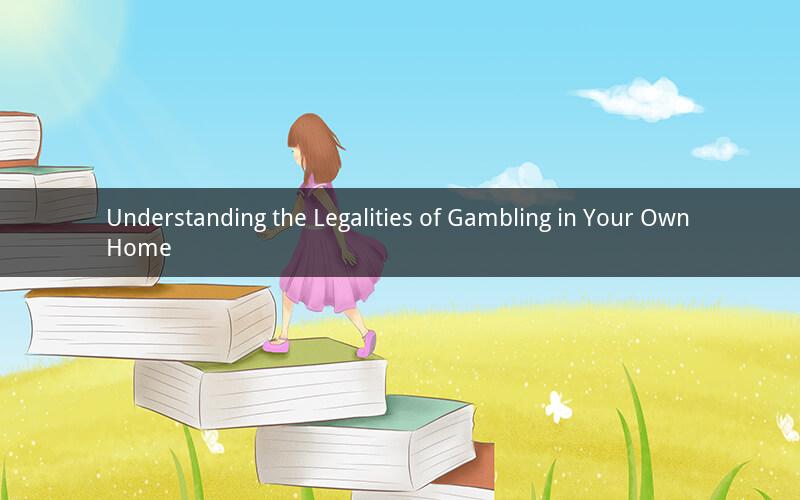
Gambling has been a topic of debate for centuries, with many countries and regions having varying laws and regulations regarding its legality. One common question that arises is whether it is illegal to gamble in one's own home. This article delves into the legal aspects of gambling in private residences, providing insights into the complexities surrounding this issue.
1. Is it illegal to gamble in your house?
The legality of gambling in one's own home largely depends on the country, state, or region in which you reside. In some places, gambling is strictly prohibited, while in others, it is legal but regulated. To determine whether it is illegal to gamble in your house, you need to consider the following factors:
a. Location: Different countries and regions have different laws regarding gambling. For instance, in the United States, the legality of gambling in a private residence varies from state to state.
b. Type of gambling: The type of gambling activity you plan to engage in also plays a crucial role in determining its legality. Some forms of gambling, such as playing cards or board games with friends for money, may be permitted, while others, like operating a casino or betting on sports, may be illegal.
c. Number of participants: The number of people involved in the gambling activity can impact its legality. In some cases, gambling with a limited number of individuals might be allowed, while large-scale gambling operations could be illegal.
2. Legal gambling in private residences in the United States
In the United States, the legality of gambling in a private residence varies by state. Here are some key points to consider:
a. Nevada: Gambling is legal in Nevada, but it is restricted to licensed casinos and licensed poker rooms. Unlicensed gambling in private residences is illegal.
b. New York: In New York, social gambling is legal, but it is subject to specific regulations. This includes playing cards or dice for money with friends, as long as no one is in the business of gambling and no admission fees are charged.
c. California: In California, gambling is legal in private residences as long as it is not for profit, and the participants are not charged an admission fee. However, certain forms of gambling, such as betting on sports, remain illegal.
3. Legal gambling in private residences in other countries
The legality of gambling in private residences varies across the globe. Here are a few examples:
a. United Kingdom: In the UK, gambling in private residences is legal, but certain conditions must be met. For instance, the Gambling Act of 2005 restricts gambling to individuals aged 18 and above, and operators must obtain a license.
b. Canada: In Canada, the legality of gambling in private residences depends on the province or territory. Some provinces, like Quebec, have strict regulations, while others, like Ontario, allow certain forms of gambling in private residences.
c. Australia: In Australia, the legality of gambling in private residences varies by state and territory. For instance, in New South Wales, certain types of gambling are legal, such as playing cards or dice for money with friends, as long as it is not for profit.
4. Risks of gambling in your own home
Even if gambling in your own home is legal, it is essential to be aware of the potential risks involved:
a. Financial risks: Gambling can lead to significant financial losses, especially if you are not disciplined in your betting habits.
b. Legal risks: Engaging in illegal gambling activities can result in fines, seizures of property, or even imprisonment.
c. Relationship risks: Problem gambling can strain personal relationships, leading to conflicts and even divorce.
5. Alternatives to gambling in your own home
If you are looking for entertainment alternatives to gambling in your own home, consider the following options:
a. Board games and card games: These are great for socializing and can be played with friends or family.
b. Video games: Many video games are available that offer hours of entertainment without any financial risk.
c. Movie nights or game nights: Hosting a movie night or game night can be a fun and cost-effective way to spend time with friends or family.
d. Outdoor activities: Engaging in outdoor activities, such as hiking, biking, or sports, can provide a healthy and enjoyable alternative to gambling.
In conclusion, the legality of gambling in your own home depends on various factors, including location, type of gambling, and the number of participants. While some forms of gambling may be legal in certain circumstances, it is crucial to be aware of the potential risks and to consider alternatives that do not involve any financial or legal implications. Always check local laws and regulations before engaging in any form of gambling.